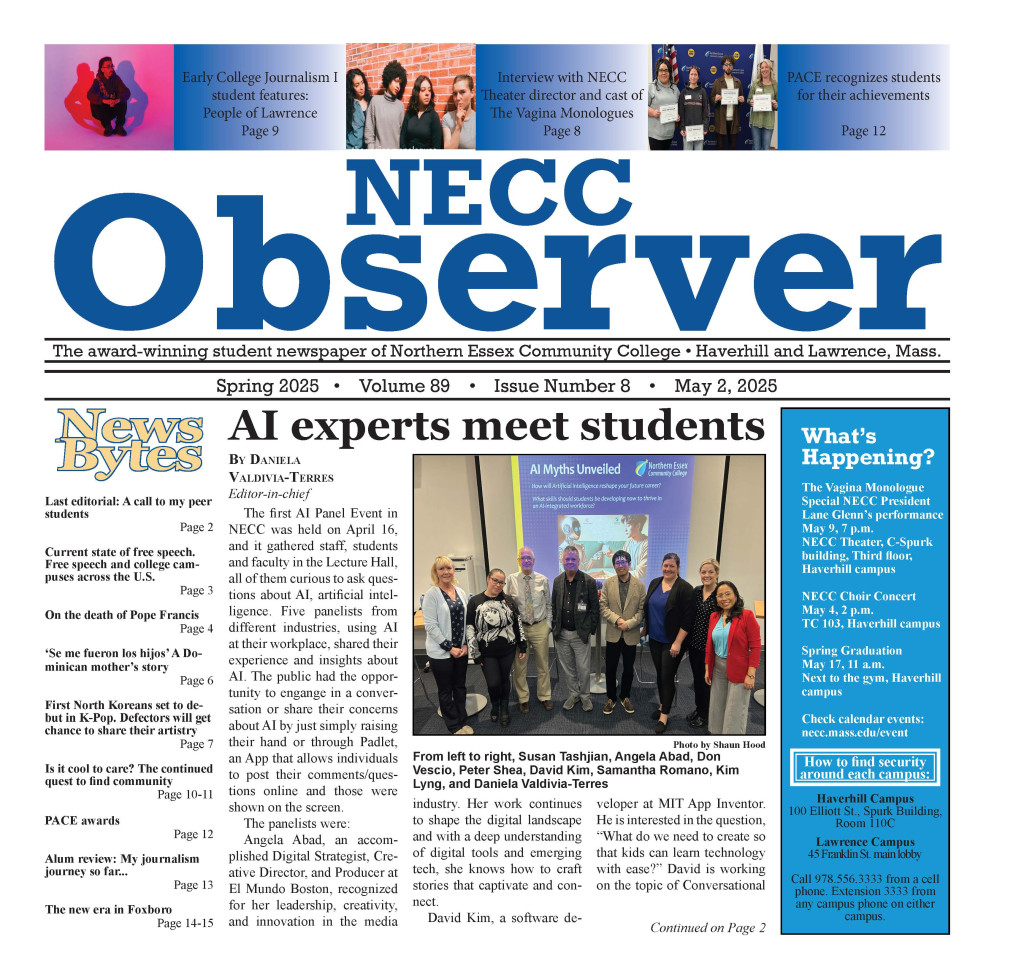Art has been around longer than any other human creation. From decorative hand axes to cave paintings, from the Renaissance to modern art to postmodern art and beyond, humans have always been driven to express themselves. Some like to paint or draw their art while others like to express their art on their body.
Tattoos have also been around for centuries. Tattoos are their own kind of art form, one that you can’t take down from your wall if you get tired looking at it.
The world is full of opinions, and when it comes to tattoos in the workplace you can expect both good and bad reactions.
In America we expect to get judged by our appearances, and I find it to be normal nowadays that when it comes to a job, if we don’t fit in to what the “norm” is, then our chances of getting hired are diminished.
I myself have four tattoos. I love every single one, and it is my way of expressing beauty. But my career path leads to a conventionally professional workplace — you don’t see many news anchors flaunting tattoos. For that reason, when I choose to get a tattoo, I hide it with clothes.
I can understand a boss not wanting to hire someone who has vulgar tattoos, but I don’t see the problem with showing of non-vulgar art.
For example surgeons, police, firefighters and EMTs are usually always covered up with their gear. These are people who save thousands of lives every single day. They should not be looked at differently because they have tattoos
The old saying “don’t judge a book by its cover” should always be in the back of your head before you judge someone.
Justin Guy of Lowell, Mass., had some things to say about this matter. “Simply put, tattoos do affect your chances of getting a job you want, if they are visible. It is seen as ‘unprofessional’ to have visible tattoos, no matter what it is,” Guy said.
“You also have to take into consideration where you work and what you’re trying to do. For example, I work at UPS as a supervisor. When I was a package sorter it didn’t matter whether I had tattoos or not, I’m not around customers so they could care less. But now that I have a supervisor position [so] I’m not allowed have tattoos that are visible — because, as I said earlier, they see it as ‘unprofessional.’
“But I do in fact have tattoos, that my work shirt covers up, so they can’t really say anything about it ‘cause its not visible.
“Moral to the story: get tattoos. Just be careful of the placement, and you can get any job you desire.”
Another student who has strong feelings about tattoo judgment is Jess Palmer of Haverhill, Mass.
(Disclosure: Jess Palmer worked for the NECC Observer from Fall 2012 to Fall 2013.)
When I first met Palmer the first thing I noticed was her strong personality. She’s such a sweet and caring girl, I came to find out one day that she has nine tattoos, and she is very proud to show them off.
Palmer says, “Although I am an advocate against stereotyping against tattoos, it’s the world we live in nowadays. People in a professional setting see tattoos as rebellious and could possibly make a bad name for their company.
“I think it’s ridiculous. Tattoos are pieces of art, but if you don’t cover them you could lose your job.
“Many workplaces make it a policy that employees cover their tattoos, and it’s sad quite honestly.
“Just because I have tattoos on my body doesn’t mean I am not educated or a well-rounded worker.
“I am ambitious, kind, and a leader but because I have tattoos I am labeled as inadequate.
“So yes, I do believe that having tattoos affects your chance of getting certain jobs when you are compared to someone who doesn’t have any tattoos or any visible ones. Do I agree with it? No. But that’s the world we live in.
“However, I am hopeful that at some point in our lifetime tattoos will become more acceptable in the workplace and society as a whole.”
Palmer has recently gotten into the photography business. One of her current projects is about tattoo stereotyping.
Palmer said, “As of December 2014, we decided that we wanted to capture photos of tattoos to help spread awareness of tattoo stereotyping.
“Many judge the art on the bodies of others because they are blind to see the stories they hold.
“Our goal here is to share those stories through artistic and tasteful black and white photos of these pieces of work.”
If you are interested in joining this project and stopping tattoo stereotyping please contact Jess Palmer at
jesspalmerphotography@gmail.com.

